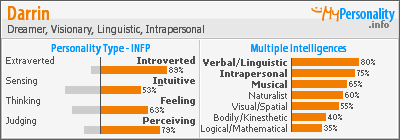But the constant in Fitzgerald's writing is a certain loss of innocence or fall from grace-- the reality of the fragility of life underneath the illusion that life is grand.
On a similar tangent, today I was reading an excellent post by Sam de Brito on the "Peter Pan syndrome"-- a certain type of guy who refuses to grow up, perpetually relieving his youth by dating college girls and going to work in jeans and ratty old Converse sneakers. de Brito makes the argument that these blokes are the ones who at one point in their lives were burned nee charred by love to the extent that the connections they seek in life tend to be casual and fleeting due to that strong a fear of getting burnt again.
He also brought up the very real potential that these Peter Pan types will end up quite alone which brought to mind a certain Harry Chapin song
"and the little manWhat is it about some of us that allows us to risk that being burnt again in the game of love where others avoid love after getting burned by its scorching intensity just once? I thought about what made me the type who was willing to risk (and inevitably experience) that pain multiple times. And I think I can trace it back to a passage I once read in one of Douglas Coupland's books. The basic idea of the passage being that the possibility of becoming numb to lows of life comes with it the opposite side of the same coin-- the risk of becoming numb to the highs of life as well. At some point I just decided that the lowest lows were worth it because they made me appreciate the highest highs that much more. Each time I got burned it just made me appreciate love that much more the next time around-- an emotional education in love if you will.
looked at the empty glass in his hand
and he smiled a crooked grin
He said, 'I guess I'm out of gin
And I know we both have been
So lonely
And if you want me to come with you
Then that's alright with me
'cause I know I'm going nowhere
and anywhere's a better place to be"-- from A Better Place to Be by Harry Chapin
Getting back to Fitzgerald, I'm left thinking-- perhaps the reason many of us don't enjoy reading the classics in high school is that we lack the emotional experience that allows us to empathize with the characters. I read Hemmigway's For Whom the Bell Tolls in high school and didn't much care for it. I read his The Sun Also Rises a few years after graduating college and absolutely loved it. On some level I could empathize with Jake Barnes in a way I'd not been able to do with Robert Jordan in high school. I hadn't yet lived enough. Both Fitzgerald and Hemmingway were able to touch on very real human emotions but only after they had steeled their emotions from the experiences in the grand adventure of life. Now with Fitzgerald, while I don't necessarily care for him, there's something about Amory Blaine that I can relate to in a way that I'd not been able to do with Nick Carraway in The Great Gatsby. Much like with For Whom the Bell Tolls I wasn't "there" yet emotionally when I read Gatsby, I had a bit more living to do (that being said, I quite enjoyed The Great Gatsby when I read it in high school-- to the point where I used to refer to my friends as "old sport" which I'm sure got old fast).
Thinking back to the books I truly did enjoy reading in high school-- Harper Lee's To Kill a Mockingbird and John Knowles' A Separate Peace the protagonists in those books are either children or adolescents. Lee and Knowles recaptured an innocence of youth that at the time I was able to relate to in a way that felt far more familiar than Hemmingway or Fitzgerald (heck I've even gone back and re-read A Separate Peace at least 3 times since high school-- it remains a favorite of mine to this day).


3 comments:
That's such a good comment about needing life experience to appreciate certain books. I'd never thought about it like that, but it makes sense.
"To Kill a Mockingbird" has long been one of my favorites.
Snooze: On the flipside I read Catcher in the Rye as an adult and didn't "get it"-- at least not the way I think I would have had I read it in high school-- it goes both ways I guess.
Susan: A true classic!
Post a Comment